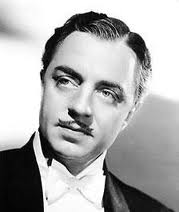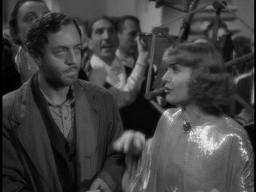Jazz the music will survive the wounds America has self-inflicted in the guise of deep cuts in government spending when economic growth has already slowed to a crawl. Jazz — as well as blues, rap, hip-hop, soul, bluegrass, chamber music and most rock ‘n’ roll — is fairly cheap to produce, given workers (musicians) who will accept pennies for hours spent doing what they love. So the devil’s advocate is moved to ask: “Are hard times good for jazz?”
Artists and audiences will suffer along with everyone else across genre preferences except, I guess, the societally maladjusted superrich — though they too may find the continental U.S. less, er, pleasant, with fewer environmental protections, food and water inspections, police and fire departments, worse roads and airports, increased unemployment, less healthy/less educated employees (who won’t be able to afford to buy whatever they’re selling) and more need of body guards. A lot of money can be a buffer against a lot of ills, but it won’t filter the air we all breathe, the future we’ll all share. And with greater income disparity between the wealthy and the rest, conflicts will not abate; they’ll escalate and multiply.
But remember the Great Depression, aka the Swing or Big Band Era? Or more likely reading about it, hearing its stars? The orchestras of Ellington, Basie, Goodman, Shaw, Waller, Lunceford, the Dorseys, Glenn Miller and many more gave the huddled masses something to dance about. Great voices/soloists including Louis Armstrong, Coleman Hawkins, Lester Young, Billie Holiday, Bing Crosby, Charlie Christian, Ella Fitzgerald, Fred Astaire, Judy Garland, Woody Guthrie, Leadbelly, Fats Waller and so on emerged from the hoi polloi — seldom the swell’s class — to express themselves, conveying life beyond toil and trouble even while looking that stuff dead in the eye.
Whether the Swing Era is dated, as Gunther Schuller has it in his book of the same name, as starting in 1930 or as Wikipedia says 1935, launched by Goodman’s breakthrough three-week stand at LA’s Palomar Ballroom, the period encompasses both the lowest years of the 20th century in the U.S. and those producing the most enduring achievements of our popular arts (besides music, also songwriting, standup and slapstick comedy, fiction and the movies). Not that widespread depression is a must have for the creation of entertaining diversions — there was hot jazz throughout the Roarin’ ’20s prior to the stock market crash in ’29; there was cool jazz and an unprecedented explosion of other pop forms from the post-WWII late ’40s through the early ’70s, when the U.S. withdrawal in expensive defeat from Vietnam and a disgraced Republican president’s resignation let to national exhaustion (not to say “malaise“). But in the Swing Era, when the possibilities of big, fast money earned from bootleggers and their best-heeled customers evaporated with the bursting of a financial bubble and the legalization of booze, musicians seemed to feel liberated rather than oppressed, and set themselves to making life a bowl of cherrys, and meaning a function of swing.
I’m spitballing here, haven’t done any research, don’t know if there is statistical supported argument that upbeat music and sweeping entertainments really proliferated during the era of the breadlines, the dustbowl, hoboes riding the rails and Franklin Delano Roosevelt’s stabs at Keynesian fiscal stimulation policies (which worked, when steadily applied). Yet the extravagant fantasies of Busby Berkeley musicals, the anarchy celebrated by the Marx Brothers, the escapism
approved by The Wizard of Oz and determination winning over travail in Gone with the Wind: is that the kind of stuff smugly self-satisfied people would favor? During the ’20s, ’30s and ’40s success in popular music was one of the few vehicles for personal survival, if not sure upward mobility — and strangely enough it proved to be that again in the late ’70s/early ’80s, when urban youth without ways out of deteriorated city centers re-purposed discarded turntables and scratched records in service of a musical movement that reflected life as they knew it, not just what they saw on tv. Maybe in the 20teens Americans will be thrown back on their own imaginations and easily accessed devices, to come up with some new music that boosts spirits, overcomes obstacles, soothes grief.
Necessity is the mother of invention — who said that? an ancient Roman — and when things are bleak, you gotta shake ’em off. (When things are ok, maybe the time’s right for more esoteric, self-reflective, edifying pursuits.) In the USA circa 2011, there are many under-employed musicians, and here’s betting in 2012 unless corporations start hiring, the recording industry revives and some genius develops a business model for the Web’s legion of content providers there will be even more. If those young players, smart people with sharp ears who want to have fun, connect their expressive energies to the rhythmic zeitgeist, they might attract eager multitudes who have just a dollar or two to spare on live performance rather than purchases from the iTunes store (because their old Macs are broken, and Steve Jobs won’t discount Apple products).
It might be too late for us oldsters who can no longer crash on pals’ sofas over the course of protracted bus tours, whose disposable income is reserved for expensive medicines and treatments not covered by our costly health insurance plans, who haven’t the spark that can make living joyously without do-re-me seem like a lark. But we’ve had our glory years. Look what they got us — defeated while partying, victims of no-nothingism, bigotry and capital run amok.
Maybe a new generation won’t mind being burdened like citizens of a third world country, juggling multiple temp jobs to cover basics with verve leftover to blow passionately into the wee hours. Maybe there will be enough trust fund babies and derivatives brokers to finance a gutsy new style that rallies both them that’s got and those who don’t.
But no, I take it back: poverty and strife aren’t good for anything, war’s worst of all. And as Billie Holiday sang, the ones who worry about nothin’ are the children who’ve got their own.


